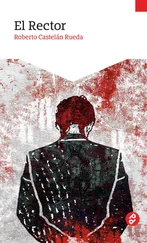Bahat McPhee gave a lot of thought to the move she would make. Carefully she calculated what she would lose and what she would gain. In the period of enthusiasm preceding Gruber’s arrival she became addicted to caffeine, and smoked like a Frenchwoman. And due to her smoking, her social problems grew more acute. Even before this nobody could have called her a popular personality in the Jewish community of Ithaca, or in the scientific community of Ithaca, or in the general population of Ithaca either. She had no status and/or charisma to attract people to her. She was regarded as a brilliant scientist who should be left alone in order to achieve the maximum.
Recently there were those in the congregation of Tikkun v’Or who suspected her of seeking a loophole to avoid spending a year in Israel. She had social problems even with the most open-minded people in Hebrew Union College, New York, New York, mainly because of her smoking, but perhaps also because of rumors and envy.
WITH ALL DUE RESPECT to his liberal views, the candidate contending for the presidency seemed to McPhee a really gray character. His skin was gray and he radiated grayness. Perhaps in the end she would vote for the flushed incumbent, who people said was better for Israel.
A black-and-white series from the fifties with Lucille Ball began and Bahat changed channels, while Gruber, in his room, went on watching Archie Bunker. He didn’t understand everything; there were some words in English he couldn’t get into his head even after their meaning was explained to him a hundred times. “The English is my wife’s,” he would sometimes say at scientific conferences when beginning the lectures in embarrassing English, which did not embarrass him. The man was so on fire with his own brilliance that he wasn’t ashamed of his English.
Bahat wrapped herself in a robe and knocked on his door, she had had it up to here with the volume of these arrogant Israelis who couldn’t see anyone else even when they were right under their noses.
Gruber opened the door in his dark blue tracksuit. (When she was alive his wife had classed him as a disappointment, in spite of all his brilliance, and would say to herself, you’ll always walk alone, Mandy Greenholtz-Gruber, Mandy G-G, for short.)
“What the fuck are you doing to me!” Bahat upbraided him, “This isn’t the corner of Motzkin and Shenkin or whatever you call your streets there. I don’t like being woken up at this ungodly hour!”
“Sorry, “muttered the Israeli.” I have ya-efet .”
“You have what?”
“Jet lag,” he made haste to translate the latest innovation of the Hebrew Language Academy.
“Good, and now please keep quiet.”
“I’m very sorry,” said the guest, “I went too far, I’m very eccentric, my wife says I’m very eccentric too.”
“I’m not your wife, but I really need you to be quiet. We have a hard day ahead of us. I have to pass on a ton of secret information to you. I don’t feel comfortable about it, I’m afraid that the place is bugged, and that my Hispanic is an FBI plant. Once they even opened a file on Lucille Ball, can you believe it? I have to sleep well and not make any mistakes. I’m an American citizen.”
“So what are you saying?” asked Irad, horrified at the possibility that the important information for which he had come all this way would be denied him because of an attack of patriotism.
But she appeared to have returned to her original plans, for she said, “I’m saying that we have to walk a very fine line here and not make a false step in any direction. The key word is balance.”
“It’s a serious business, I agree,” said Irad.
“Then I’ll say goodnight,” said McPhee and turned to go back to her room. Gruber took a mental photograph of her receding back and the long, thick braid dangling down it. He asked himself if she worked out, and berated himself for not doing so personally.
He tried to go to sleep, but soon gave up and went quietly downstairs. There was a television set on the ground floor too, huge and flat as their own in Telba-North. He muted the sound and switched it on to All the President’s Men . Luckily he had already seen the movie more than once on cable.
He looked for the light switch in the kitchen and turned on all kinds of lights outside the house, at the bottom of the yard, in the garage, the garbage room, in the garden, apparently to call attention to its beauty, and quickly switched them off again. Judging by this McPhee’s sense of proportion, she was liable to accuse him of setting off a fireworks display.
He had never come across a woman with such a short fuse, a fact which he attributed to her genius. There was always a price to pay for genius. In his case, for example, the eccentricity, the egoism, the need for instant gratification. At the cocktail party on the terrace in Jaffa that Mandy had organized after he had received the Israel Prize, he had gotten into conversation with one of the guests, a neurologist if he wasn’t mistaken, about the price of genius. The guy, it transpired, had written an article on the subject years ago and had it published in the newspaper Davar , now defunct. According to him, the sensitivity of men of genius made it inevitable that their nervous systems would suffer harm. Gruber was embarrassed. Was the man trying to tell him that his nervous system was damaged? “That’s the package,” said his interlocutor with total confidence, and Gruber beat a hasty retreat before he could present him with the living proof of his thesis.
AT LAST HE FOUND the kitchen light switch and was immediately exposed to a long line of certificates of graduation and distinction hanging on the wall, in botany, zoology, Judaism. . okay, he had certificates at home too, albeit not hanging on the wall. He looked for her regular coffee and hoped she had regular milk as well, and not that half-and-half.
The coffee machine made a bit of noise and he prayed that Bahat was sound asleep again. In the fridge there was only half-and-half, and Gruber poured the stuff into his coffee, which it turned too white so that he contemplated the result with profound reservations.
He sat down on the sofa opposite the mute television and sipped his coffee. Suddenly he had a good feeling. Maybe because the coffee was good and stimulating. What did he lack? This fullness of being spread through him and he felt, as sometimes happened, that being should be appreciated as such, without all the bullshit of achieving. All in all, what did he have to complain about? He was healthy in body and mind, sitting in the exclusive north of the United States, in the home of an ex-Israeli, drinking coffee, feeling comfortable, even relaxed. Tomorrow, so she said, in other words today, she would pass on to him what she knew about the spider net, and in the meantime until that hour arrived, he would spend the time at his ease. Like now, watching a movie he had already seen and was therefore familiar to him. Those actors were already old. He had seen Dustin Hoffman in a recent movie. But what did Hoffman’s age have to do with him?
He stared at the bustling news room of the Washington Post , when suddenly on the wall to the right of the television set he noticed a framed official photograph of Richard Nixon himself.
Two puzzling questions occurred to him. Firstly, what did Professor Bahat McPhee have to do with Richard Nixon? And secondly, wasn’t it strange that he should discover this photograph just when they were showing All the President’s Men on television?
He rose to his feet and went over to the portrait. An old photograph. The president was smiling, so it had apparently been taken before the exposure of the Watergate bugging.
As for the first question he speculated that perhaps he was witness to a pure and simple love of Israel. It was Nixon’s airlift during the Yom Kippur War that had saved the state. Did McPhee gain inspiration from the disgraced president and say to herself, if he stood up for Israel why shouldn’t I bypass Cornell University, Ithaca City Hall, the Pentagon, and the French health authorities to give the Israelis a bit of a push?
Читать дальше












